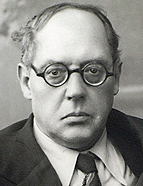

Sérgio, concerned about the future and the problematisation of the past in relation to the future, sees in the works of Pimenta and other nationalist historians “historical expositions and historical spectacles that would characterise a certain way of writing history [...] and that would lead [the people] towards a useless nostalgia for the past”. Pimenta responds with the argument that “the future, like the present, [is] contained in the past, and the present can only be its continuation, which should not be broken or distorted, lest it collapse (idem, p. 11). And to Sérgio’s interpretative analysis, Pimenta retorts, once again, with an apology for his method of objective history: “A victim of his obsession with thinking, Mr António Sérgio starts from the principle that knowledge is inferior to thinking, and that one cannot think without knowing. […] the balance lies in thinking about what one knows – ordering, classifying, juxtaposing, comparing the materials collected” (Idem, p. 8).
The method itself, moreover, is not the most problematic aspect. Take, for example, the opinion of Virgínia Rau, who later considered most of Alfredo Pimenta’s studies to be “fully valid for their substance and the tenacity of the research, for the culture and critical vigour that illuminate them, and for the methodological concepts that enrich them.” – Virgínia Rau, “O historiador e o escritor Alfredo Pimenta” [The historian and writer Alfredo Pimenta], 1982, p. 385.). However, there is always an evident instrumentalisation of historiography in his works in the sense of what we might call “subjective objectivity”. He lacked a work of synthesis – he had planned to write a History of Portugal – although he would certainly have ended up following the same line of historical thought that characterised him: “I have my truth, I have my conclusion […]. Whether it is my truth or that of others that suits the national interest and serves it, only the distant future will tell” (Elementos de História de Portugal, 1934, p. ix).
This work is financed by national funds through FCT - Foundation for Science and Technology, I.P, in the scope of the projects UIDB/04311/2020 and UIDP/04311/2020.
